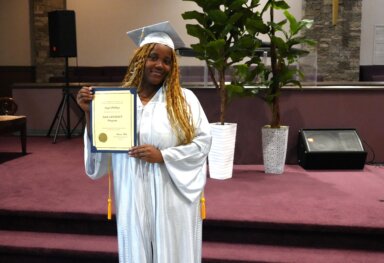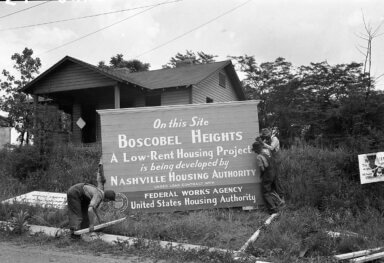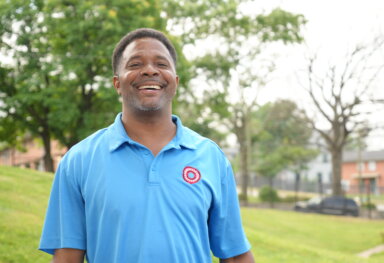 Nashville has been awarded a $3.5 million grant from the U.S. Department of Housing and Urban Development’s (HUD) Youth Homelessness Demonstration Program (YHDP) to help end youth homelessness. This program supports a wide range of housing interventions including rapid rehousing, permanent supportive housing, transitional housing and host homes.
Nashville has been awarded a $3.5 million grant from the U.S. Department of Housing and Urban Development’s (HUD) Youth Homelessness Demonstration Program (YHDP) to help end youth homelessness. This program supports a wide range of housing interventions including rapid rehousing, permanent supportive housing, transitional housing and host homes.
“No child, teenager or young adult should have to live on the streets,” Mayor David Briley said. “With a solid foundation of housing, services, planning and data, we can end youth homelessness, and this grant will help us do it. Thank you to HUD, the Metro Homeless Impact Division, MDHA, Oasis Center and the 22 local partners who worked on the application.”
Nashville is one of 11 communities awarded funding on July 13. HUD Assistant Secretary for the Office of Community Planning and Development Neal Rackleff made the announcement at 2 p.m. today at the Oasis Center in Nashville.
“The problem of youth homelessness is one that we are committed to addressing,” said HUD Assistant Secretary for the Office of Community Planning and Development Neal Rackleff. “Among all the people who experience homelessness in this country, young people are the most difficult to find, the most difficult to collect data on and, by extension, the most difficult to serve. That’s why this program relies on creativity and innovation at the local level. We know that the Metropolitan Development and Housing Agency and its partners are up for the challenge. We are pleased to support their efforts and, we look forward to working with them to develop real solutions that end homelessness for young people in Nashville and across America.”
MDHA applied for the grant in April 2018 in collaboration with Metro Homeless Impact Division and 22 other partners including the Oasis Center, Metro Nashville Public Schools, Tennessee Department of Children Services, the Youth Action Board, and the Metro Juvenile Justice Center.
“This award comes at the most advantageous moment possible for Nashville. Directly as a result of HUD technical assistance, we have modernized our governance approach to homelessness,” said District 19 Councilman Freddie O’Connell. “With partners like Oasis Center, we will be better equipped to leverage these funds than ever before.”
Oasis Center together with the Metropolitan Homelessness Commission (now referred to as Metro Homeless Impact Division), brought together the 22 agencies involved in the grant application in 2016 to create the Key Action Plan, our city’s first community-wide initiative to address homelessness for youth and young adults 18 to 24 years of age.
“For two years now, we have been working together to create and implement solutions to end youth homelessness in Nashville,” said Oasis Center’s Chief Strategy Officer Mark Dunkerley. “This grant will allow
us to realize our dreams of creating a coordinated system of services around prevention, immediate assistance and long term housing and supportive services.” The Key Action Plan laid the foundation for ongoing collaboration among youth providers and created a shared community vision around four focus areas to end youth and young adult (YYA) homelessness: Prevention, Immediate Response, Coordinated Entry and Long-term Solutions.
“Ending youth homelessness is about building community for young people who may have never learned what having a home means,” said Director of Metro Homeless Impact Division Judy Tackett. “Through this grant, our Nashville community is making a commitment to our youth and young adults who are 24 years of age or younger and who struggle with homelessness. We will listen to you, we will hear you, and we will invest in you.”
During Nashville’s winter shelter season, community partners identified 353 individuals ages 18 to 24 who utilized designed youth emergency shelters. The 2018 Point in Time (PIT) Count found 81 youth and young adults who were in emergency shelters or on the streets during that one night.
“Nashville’s youth should be focused on school or a career, not where they will sleep each night,” said MDHA Executive Director Jim Harbison. “Thanks to HUD, we now have significant resources to help prevent and end youth homelessness, and we are committed to building at least 40 units for homeless youth on MDHA owned land.”
Nashville native Ashley Oswald supports these efforts. She was homeless four years ago, after her mother became ill. They lost their apartment while she was in the hospital.
“I was homeless for 573 days. During that time, I had to drop out of college, a decision that broke my heart,” said Oswald. “Now that my housing is stable and my education needs are met, I’ve turned my focus to helping the community and other youth and young adults facing homelessness. Through the Youth Action Board, I have the platform to make my voice and the voice of others, like me, heard. I’m committed to helping our community work towards ending youth homelessness.”
Nashville’s YHDP application highlights the local work to build an effective systems approach to ending all types of homelessness including youth and young adult (YYA) homelessness; our significant improvements in collecting system wide data, and our innovation capacity around youth homeless strategies over the past two years. Specifically, we described how Nashville has increased its youth-specific winter shelter program for 18 to 24-year-olds to cover seven nights over a five-month period. In addition, Nashville launched a partnership to create a youth-focused Rapid Re-housing program with intensive services and located it next to our community’s Youth Opportunities Center, which housed five nonprofit organizations offering youth-specific programs.


